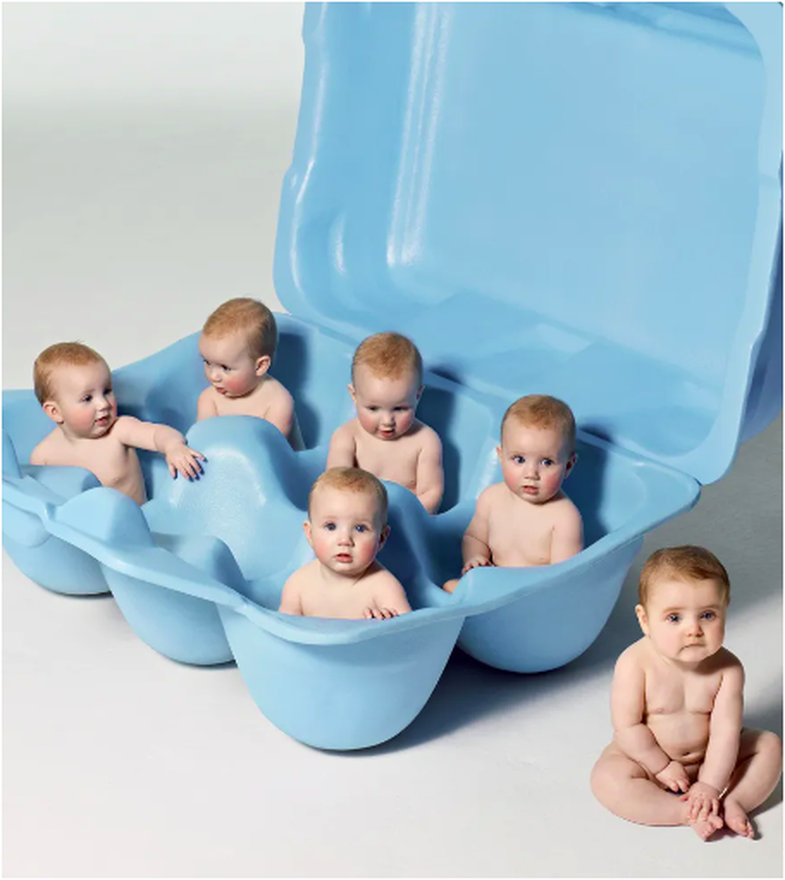
The choice to "postpone" pregnancy by freezing eggs is more common than it used to be. Whether it's because you want to focus solely on your career, find a partner, or treat health problems, choosing to freeze your eggs gives you the opportunity to manage other aspects of your life until you're ready to conceive. .
Although egg freezing is no longer a foreign concept, not everyone is aware of the complete process.
What is egg freezing?
Egg freezing is a form of assisted reproductive technology. During the procedure, medications are used to stimulate egg growth. Those eggs are then collected from the ovaries and stored frozen. At a later date, eggs can be fused and combined with sperm to create an embryo. The embryo can then implant in the uterus.
Regardless of the reason for egg freezing, the overall goal is the same: egg storage allows you to preserve fertility by collecting eggs at a younger age, which can be used at a later date. Although this will not 100% guarantee a pregnancy, it can increase the chances of getting pregnant later, at an older age.

Egg freezing process and timeline
Timelines can vary slightly, but typically the entire egg freezing process can take anywhere from 2 to 3 weeks to complete. Most cycles can be completed in less than 2 weeks. Stimulating the ovaries to produce eggs coincides with the menstrual cycle to ensure better results. During this process, the ovaries are carefully monitored using ultrasound and blood tests to check hormone levels.
Who can consider egg freezing?
There are many reasons to consider egg freezing, but the most common reasons are to preserve fertility or to donate eggs. One of the reasons is related to career. Also many women choose to freeze eggs when they have serious health conditions that can affect fertility - such as chemotherapy for cancer, polycystic ovary syndrome, endometriosis, etc. These women are advised to freeze their eggs before undergoing treatments in order to preserve fertility.
Risks and side effects
Most patients will simply experience discomfort during the injection period and immediately after egg retrieval, although the process is not without risks. Rarely, a patient may experience ovarian hyperstimulation syndrome - when the medications used to stimulate the ovaries to make eggs also cause very high levels of hormones, which can cause the ovaries to enlarge, fluid leakage into the abdomen, etc.
Egg freezing can be associated with stress, which can be exacerbated by hormonal medications.
Other side effects associated with hormone injections and ovarian stimulation include skin irritation at the injection sites and ovarian torsion, which is a rare condition.

What is the best age to freeze eggs?
For most women, age 30 represents peak fertility. Although eggs can continue to be retrieved and frozen beyond this age, most fertility specialists are less likely to encourage egg freezing for women in their 40s.
Are there potential risks to a fetus that comes from a frozen egg?
Assuming no underlying problems are present, there are no known risks to fetuses developing from frozen eggs.
What are the chances of conceiving a child using frozen eggs?
This depends on a number of factors including age and the quantity and quality of eggs used. A study found that under the age of 35, if you fertilize 20 eggs, there is a 94.4% chance of having at least 1 birth. The birth rate drops to 5.9% for people who freeze only 5 eggs at an older age.
How much does egg freezing cost?
The cost of egg freezing can vary greatly depending on the clinic and where you are located. The process of egg freezing is evaluated according to cycles.
Typically, an egg freezing cycle can range plus/minus $5,000 to $10,000 per cycle. The total cost of the cycle can increase if you consider the cost of medications, which can range from $2,000 to $7,000 depending on the dose and combination of medications prescribed.
Meanwhile, you should also consider the cost of egg storage. Depending on the clinic, there may be a fixed annual cost of $500 to $1,000.





